6 Surprising Ashera Cat Facts: Lifespan & Temperament
Updated on
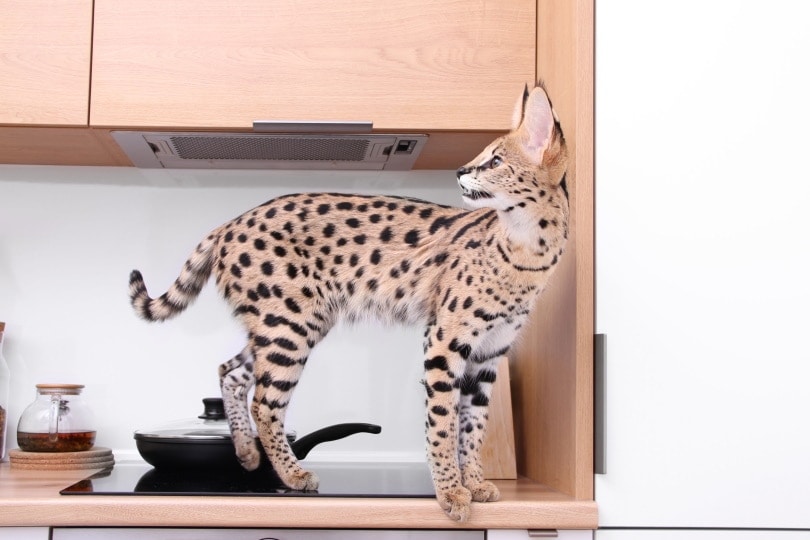
Even if you’re a cat enthusiast, you may have never heard of the Ashera cat. If you are familiar with the Ashera cat, then you may wonder: Are Ashera cats dangerous? After all, they do have wildcats in their bloodlines! Even if you think you know the Ashera cat, you might be surprised by some of these interesting facts about these cats.
The 6 Ashera Cat Facts
1. The Breed Doesn’t Really Exist
Ashera cats popped up with the claim of them being an independent breed sometime around the early 2000s. The Ashera breed claim is often traced back to a man named Simon Francis Campbell Brodie, who began selling cats labeled as Ashera cats around 2004.
As people began buying cats with breeding rights, the Ashera breed was growing. However, genetic testing has shown that the original Ashera cats were simply F1 Savannah cats. Ashera cats are not an independent breed from the Savannah, but they were being sold at high prices and being marketed as extremely rare cats.
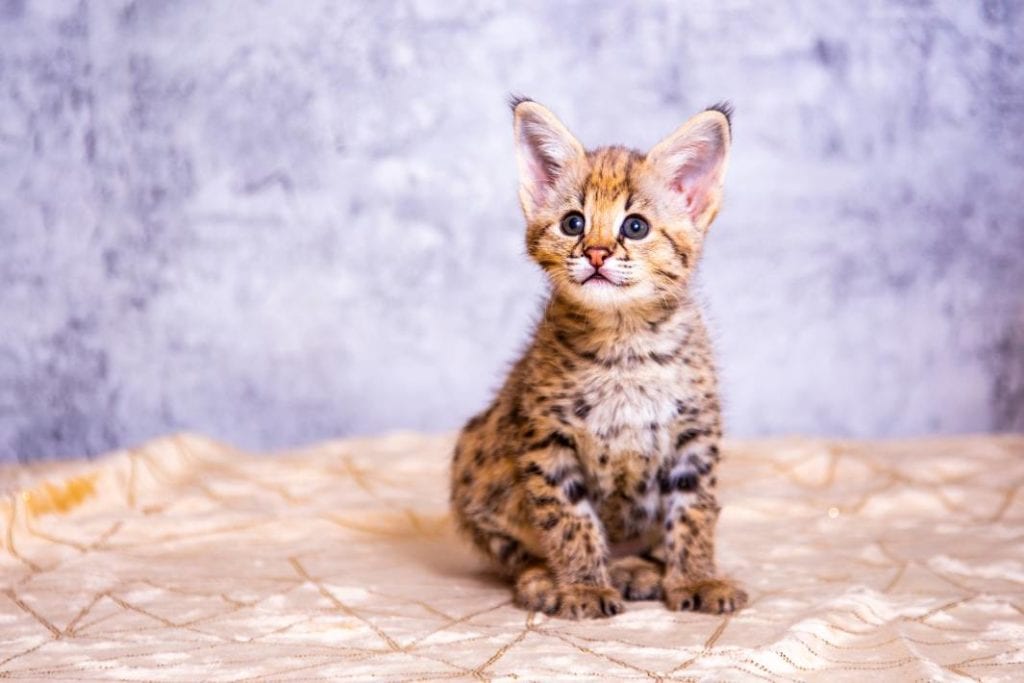
2. They Can Live Long Lives
The Ashera cat’s lifespan can be surprisingly long. It’s common for them to live up to 15 years, but there have been many reports of cats living between 20–25 years of age.
To develop the Savannah cat, the African Serval was crossed with multiple domestic cat breeds. The Serval’s lifespan in the wild rarely exceeds 12 years, while domestic house cats routinely live into their teens. It is possible for a shorter lifespan to occur due to medical conditions, poor genetics, or improper care.
In captivity, Servals can live to 20 years of age, which may give an age boost for Ashera cats that are properly cared for.
3. They’re Larger Than Most House Cats
While most people are familiar with large domestic cat breeds, like the Maine Coon, many people aren’t aware of just how large the Ashera/Savannah cat can get. While most domestic cats weigh under 15 pounds, some larger breeds may exceed 20 pounds. The Ashera is known to exceed 20 pounds, usually weighing between 22–33 pounds. They’re also tall cats, measuring around 16 inches in height, while the average domestic cat stands at less than 10 inches.
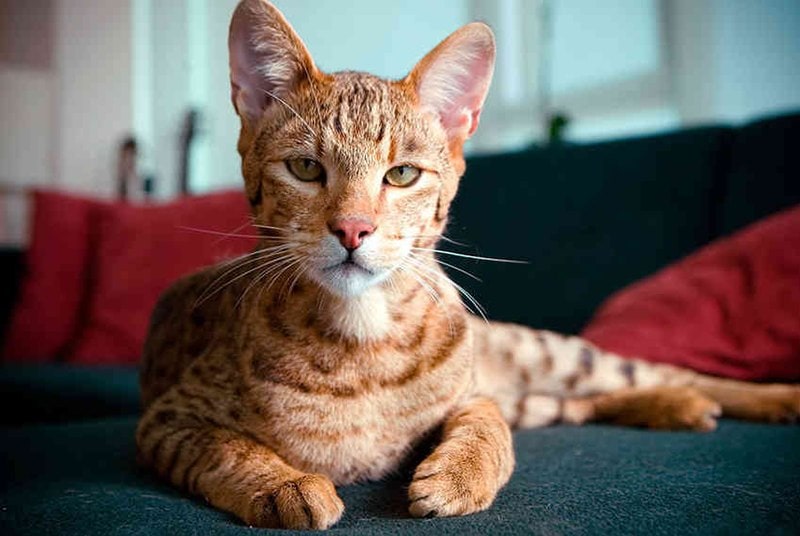
4. They’re Not for Everyone
The exotic appearance of these cats draws people to them, and many people choose them based on looks alone. Unfortunately, that doesn’t usually end well. These cats simply aren’t for everyone. They’re more closely related to their wildcat family than most domestic cat breeds are, so they may retain a stronger attachment to their wild nature, although they are typically not considered more dangerous than most house cats.
Their large size can also make them unsuitable for some homes. These cats love to be around their people, and they can develop separation anxiety when left alone, so they’re not suitable for homes where everyone is gone all day. They’re also athletic cats that like to go for leash walks and play games, which makes them a poor choice for someone who’s hoping for a laid-back house cat.
5. They’re Known for Being Dog-Like
If you’re one of those people who love the personality of a dog in a cat’s body, then you’ll love these kitties. In the Ashera, you can expect a cat that will love to play games with you, especially fetch. They may like water more than the average cat, as well as games and sports. A kitty agility course would be an ideal play environment for these cats. They also love to go for walks, and they can be quite social in a public setting, even with dogs.
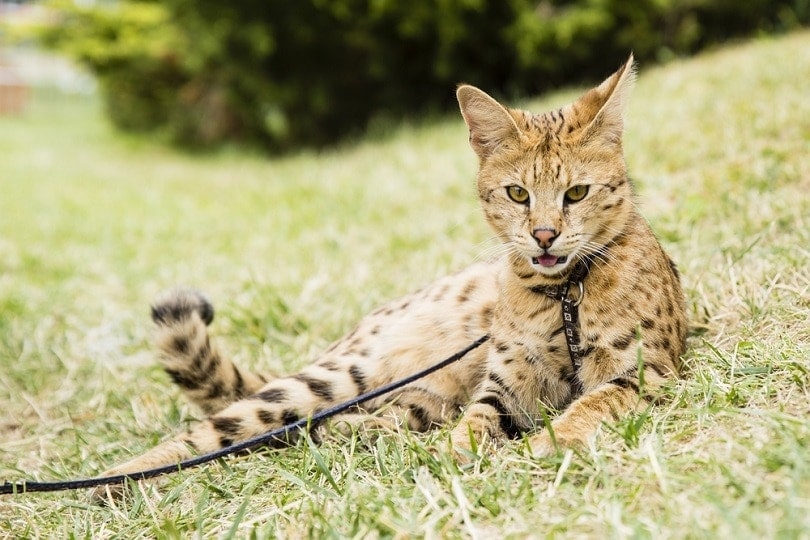
6. They Aren’t Hypoallergenic
Not only were Ashera cats marketed as extremely rare, but they were also marketed as hypoallergenic cats. This simply is not true, though. There are no truly hypoallergenic cats because pet allergies are set off by proteins, which occur in dander, urine, and saliva. Even hairless and low-shedding breeds can trigger an allergy response.
While the Ashera may not be a heavy-shedding cat, they absolutely are not hypoallergenic, so don’t seek these cats out with the hope that an Ashera would be appropriate for your home if you have allergies.
The Story of the Ashera Cat Is Convoluted
As previously mentioned, the Ashera cat is just an early-generation Savannah cat being marketed as a rare and exotic breed that nobody has heard of. Multiple players have been involved in scams to sell the Ashera cat, making thousands off of unsuspecting people.
The story is so convoluted and the scam runs so deep that even ABC News was involved in the story at one point. They caught up to Mr. Brodie, who is believed to be the originator of the Ashera cat scam, but when they found him, he was selling Bengal cats. However, they were being marketed as—you guessed it—Ashera cats.
If you’re in the market for an exotic cat breed, it’s best to stick to the developed breeds, like Savannah cats and Bengals. Poorly bred cats are more likely to have serious health problems. It’s important to thoroughly investigate any breeder before bringing home a kitten from them. Breeders that don’t follow breed standards, don’t breed to better the breed, and don’t perform health testing on their breeding cats should not be trusted to provide you with a healthy cat.
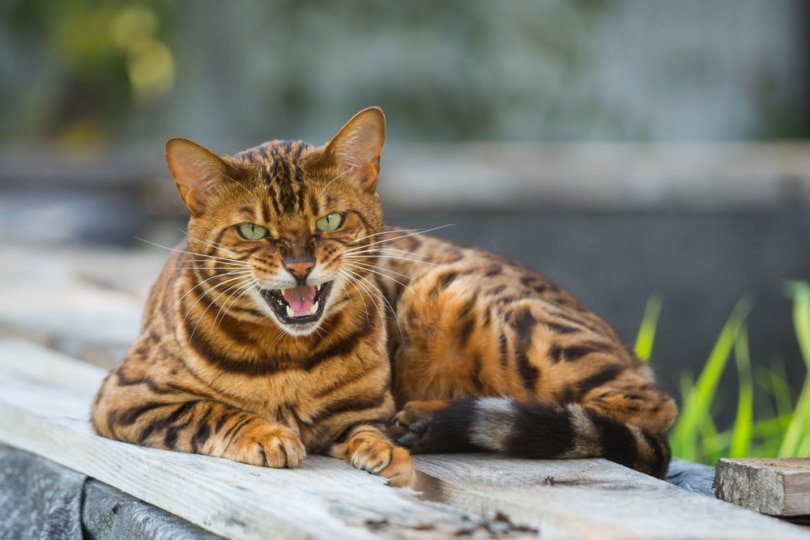
Final Thoughts
The Ashera cat isn’t a true breed at all, but Savannah cats are fascinating. They are social animals that love to play, and a Savannah can be a wonderful addition to the right home. It’s important, though, to choose a responsible breeder when purchasing a cat. Also, don’t count on your cat to be hypoallergenic. If someone in your household has a serious cat allergy, then it’s best to avoid most cat breeds entirely.
Featured Image Credit: Mirencats, Shutterstock











